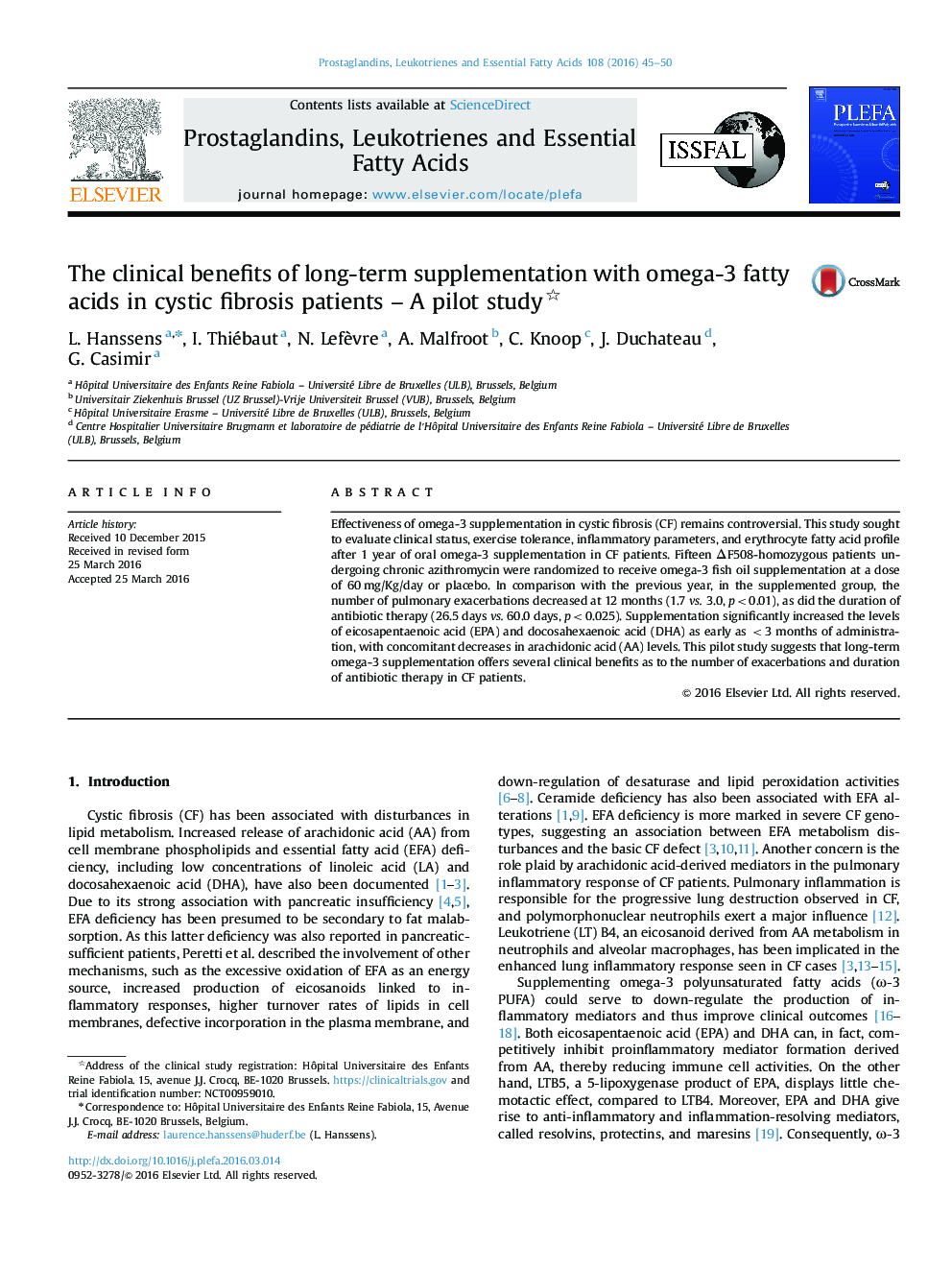| کد مقاله | کد نشریه | سال انتشار | مقاله انگلیسی | نسخه تمام متن |
|---|---|---|---|---|
| 2777470 | 1568011 | 2016 | 6 صفحه PDF | دانلود رایگان |
• Essential fatty acid deficiency has been reported to occur in cystic fibrosis (CF) patients.
• The clinical benefits of omega-3 supplementation in CF remain controversial.
• This supplementation has shown beneficial in terms of duration of antibiotic therapy and number of exacerbations.
• Omega-3 supplementation should be considered as treatment for CF, particularly in patients with severe CF genotypes.
Effectiveness of omega-3 supplementation in cystic fibrosis (CF) remains controversial. This study sought to evaluate clinical status, exercise tolerance, inflammatory parameters, and erythrocyte fatty acid profile after 1 year of oral omega-3 supplementation in CF patients. Fifteen ΔF508-homozygous patients undergoing chronic azithromycin were randomized to receive omega-3 fish oil supplementation at a dose of 60 mg/Kg/day or placebo. In comparison with the previous year, in the supplemented group, the number of pulmonary exacerbations decreased at 12 months (1.7 vs. 3.0, p<0.01), as did the duration of antibiotic therapy (26.5 days vs. 60.0 days, p<0.025). Supplementation significantly increased the levels of eicosapentaenoic acid (EPA) and docosahexaenoic acid (DHA) as early as <3 months of administration, with concomitant decreases in arachidonic acid (AA) levels. This pilot study suggests that long-term omega-3 supplementation offers several clinical benefits as to the number of exacerbations and duration of antibiotic therapy in CF patients.
Journal: Prostaglandins, Leukotrienes and Essential Fatty Acids (PLEFA) - Volume 108, May 2016, Pages 45–50
